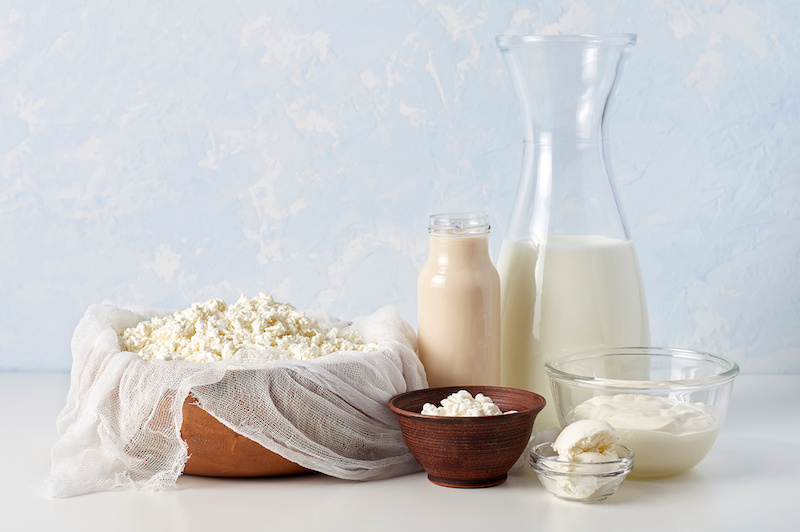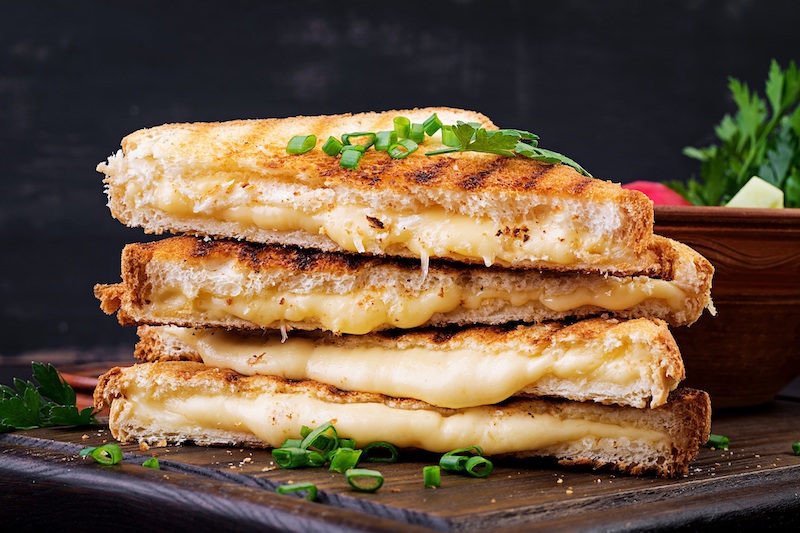As countries around the world, like South Africa, grapple with easing lock-downs and rebuilding economies, COVID-19 remains part of everyday life. Protection from the novel virus is likely to remain a high priority for the foreseeable future. Maintaining our health and supporting our immune systems has probably never been so important for our families. Many South Africans are also tightening the purse strings on their household budgets as the financial consequences of the pandemic response become starker and global recession looms.
When it comes to food and getting the most ‘bang for your buck’, you have to focus on nutrient density. How can you get healthful nutrition that strengthens your family’s immune systems on a tighter budget? From the days when a glass bottle of milk was left on our doorstep, we’ve always known that dairy is not just good for us but blessedly affordable, through the good times and the tough times. Dairy is unique in its offering of high quality protein, as well as an array of essential vitamins and minerals, such as calcium. Dairy, on its own or as a vital ingredient, is also a fond family comfort food!
This year, on the 20th anniversary of World Milk Day, Rediscover Dairy will be celebrating all that dairy has to offer into our own homes: enjoyment, versatility, affordable access to nutrients and nostalgia.
Affordable dairy’s role in a healthy diet

While there’s unfortunately no food or food supplement that can help us to prevent COVID-19 infection or cure it, there’s a lot we can do with our diet to optimise our family’s health. South Africa’s Food-Based Dietary Guidelines (FBDG) provides a country-specific blueprint, and there are specific guidelines we can focus on during this time.
The following FBDG are particularly useful at present: ‘Enjoy a variety of foods’; ‘Eat plenty of vegetables and fruit every day’ and ‘Have milk, maas or yoghurt every day’.
Dairy is not just a vital source of high quality protein; it’s also packed with vitamins such as A, and B12 , as well as calcium, potassium , and zinc. It’s this range of essential micro-nutrients that ensures fantastic nutritional value for money that can help low-income South African households overcome mild forms of malnutrition that make us more vulnerable to diseases. Fermented dairy products such as maas, yoghurt and many cheeses are rich in probiotics that improve the health of our digestive systems which play a pivotal role in immune response. If you are planning to cut down on your food budget in the coming months, make sure you prioritise the nutrient-dense foods such as vegetables and fruit, dairy and whole-grains so that your family’s diet is focused on health and wellness. Look for opportunities to rather swap out nutrient-poor foods for the better options.
Tips to improve comfort eating

Lockdown takes its toll on our emotional well-being and overall mental health, and it’s not surprising that many South Africans are ‘comfort eating’. Financial worry, boredom, frustration with confinement, depression and sleep disturbances are just some of the common ways that the extreme stress of the pandemic is playing out in our daily lives. Lockdown tends to be associated with more eating occasions and a higher intake of refined carbohydrates, especially sugar.
These foods are known to increase the ‘feel-good’ hormone serotonin, but at the same time they provide a lot of energy without the necessary nutrients and can lead to unwanted weight gain.
A better option is to boost serotonin levels by including foods with an amino acid called tryptophan in your diet. Milk and dairy products are rich sources of tryptophan, which the body uses to produce serotonin. Tryptophan also produces melatonin, another biochemical that helps to promote sleep and relaxation. A glass of warm milk at night, can contribute to your serotonin and melatonin levels and help you to feel less stressed. You will also sleep more peacefully. Milk is also known to help you keep fuller for longer and can help limit unnecessary eating. We have to ensure that our ‘lockdown nibbling’ doesn’t feeds obesity, which promotes COVID-19 co-morbidities such as type 2 diabetes, heart disease and respiratory problems. Instead of nutrient-poor snacks try delicious frozen yoghurts, dairy and fruit smoothies and whole-grain crackers with cottage cheese.
For the love of dairy

From cheese toasties and bowls of gogo’s amasi to buttermilk rusks, fresh pancakes and heart-warming umphokoqo, dairy really is the ultimate comfort food, not only nurturing our bodies but invoking treasured childhood memories and giving us that sense in the moment that things can turn out alright and our world will be well again.
Former MasterChef finalist, Chef Siphokazi Mdlankomo says, “My childhood memories of amasi are great memories. As a child growing up in the rural villages of Eastern Cape, amasi was the best meal anyone could eat. Luckily my family did not buy amasi because my grandmother had lots of livestock so she would make incredible amasi with our own fresh milk.”
Celebrate World Dairy Day on 1 June 2020 with delicious, dairy-inspired family treats, and to learn more about how you can include dairy in your diet, join the Rediscover Dairy Facebook page: www.facebook.com/RediscoverDAIRY
- Why dairy for all-day focus and energy - May 28, 2025
- The power of dairy nutrition for active teenagers - September 19, 2024
- Why dairy has a significant place in sustainable diets - June 7, 2024





